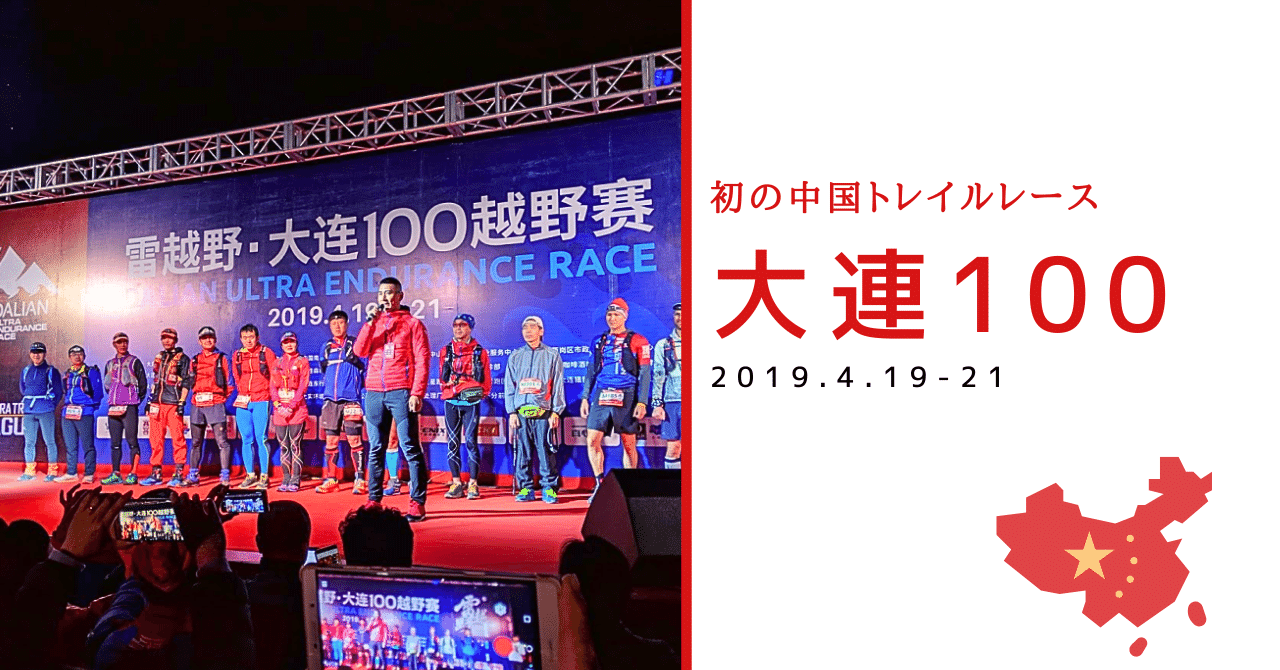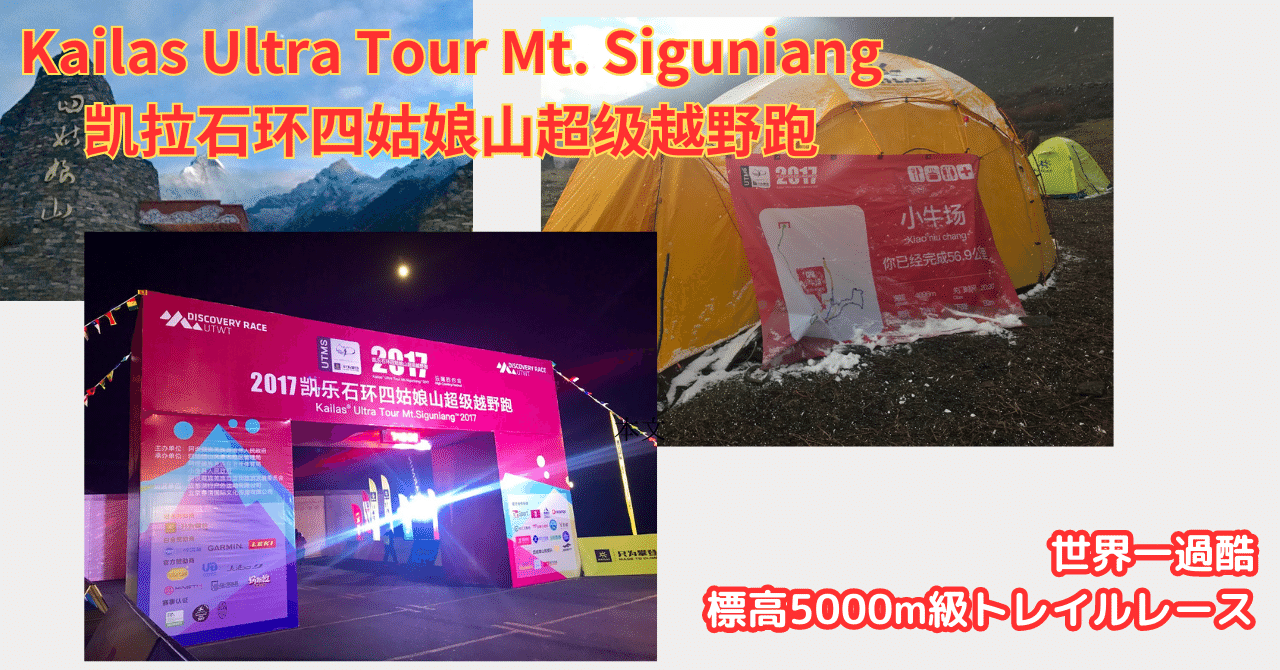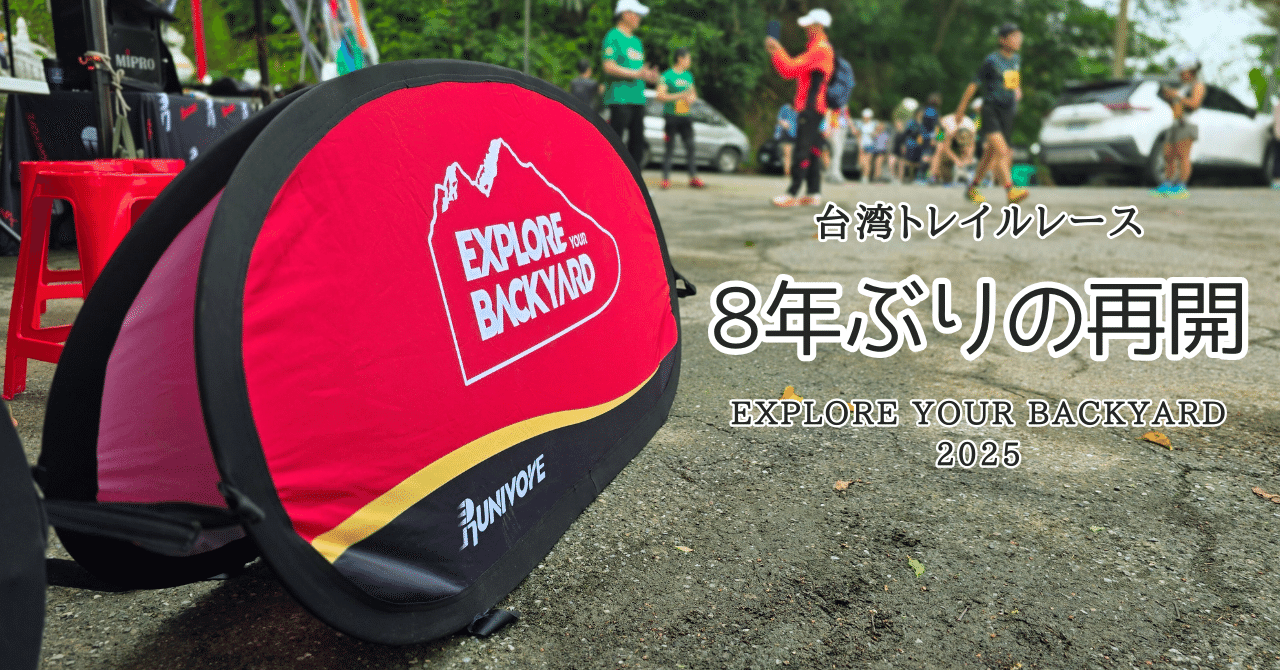April 19-21, 2019 I participated in the Dalian 100 越野赛 (English name: DALIAN 100 Ultra Endurance Race), a trail race held in Dalian (Dalian/Dalian), China (the race name is hereafter referred to as the Dalian 100). The Dalian 100 is a race in China that I have wanted to participate in for a long time, and this race was featured in RUN+TRAIL vol. 35, which was released at the end of February.
Dalian is located on the Liaodong Peninsula in northeastern China and is accessible from Kansai International Airport in about 2.5 hours. In fact, it is closer than Okinawa, Hokkaido, or Taipei. With Chinese airlines (China Southern, China Eastern, etc.), you can get a round-trip ticket for around 20,000 yen. In addition, Dalian is one of the cities with many Japanese expatriates due to the large number of Japanese companies operating in the area. Perhaps because of this, there are stores with Japanese menus and shopkeepers who speak Japanese (but beware that cab drivers do not understand Japanese at all).
Dalian 100 Race Outline
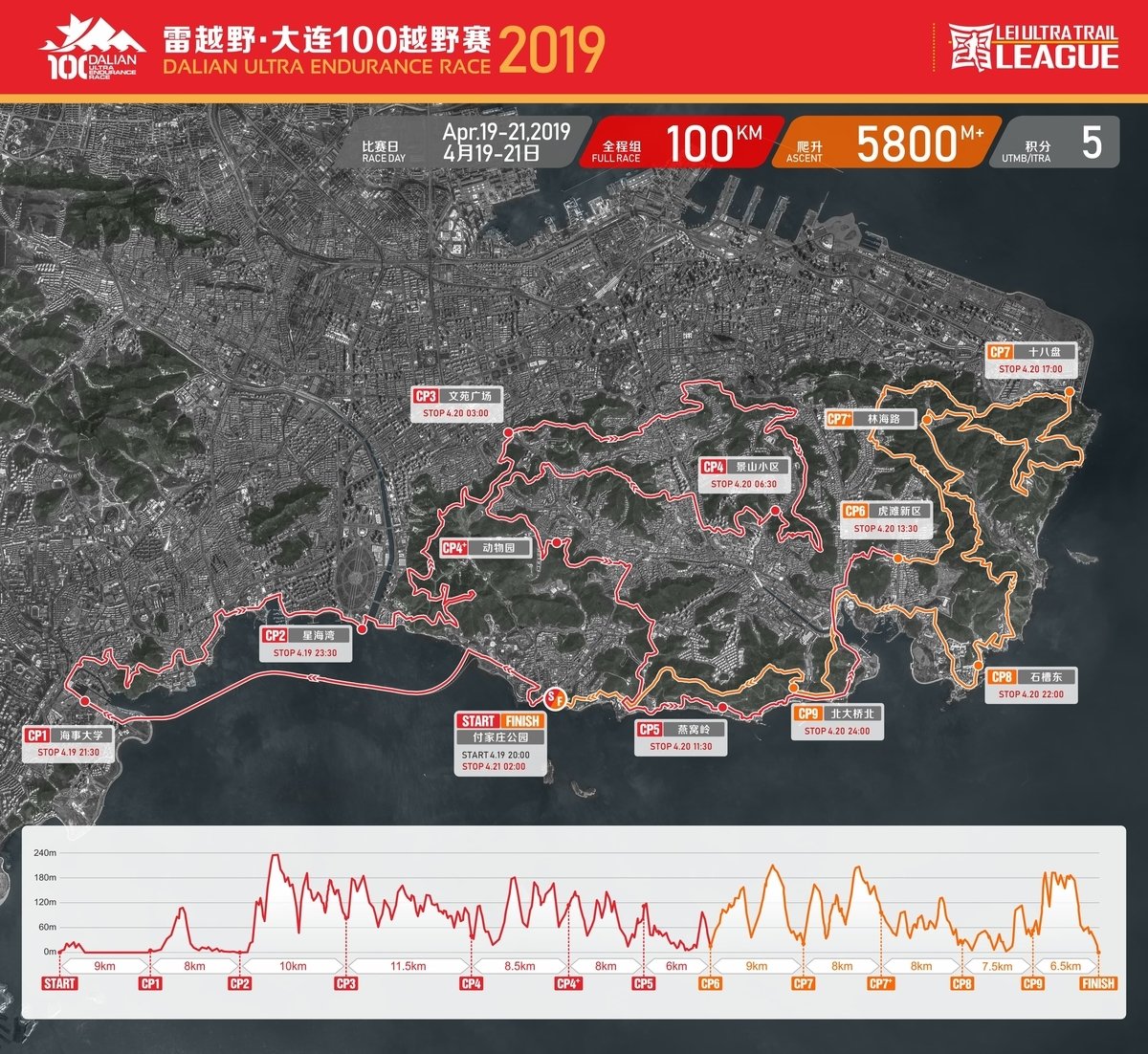
- Race name: Dalian 100 Yueye赛 (English name: DALIAN 100 Ultra Endurance Race)
- Distance: 100km (5800M+, ITRA 5), 50km (2900M+, ITRA 3), 20km (1180M+, ITRA 1)
- Time limit: 30 hours (100km), 18 hours (50km), 7 hours (20km)
- Start/finish line: Zujiazhuang Park
The Dalian 100 is one of China’s leading trail running races. In explaining this event, it is better to introduce the organizer to better understand this event. The organizer is Yu Lei, a famous trail runner in China. He is a legend in the Chinese trail running world, in the class of Tsuyoshi Kaburaki and Hiroki Ishikawa in Japan.
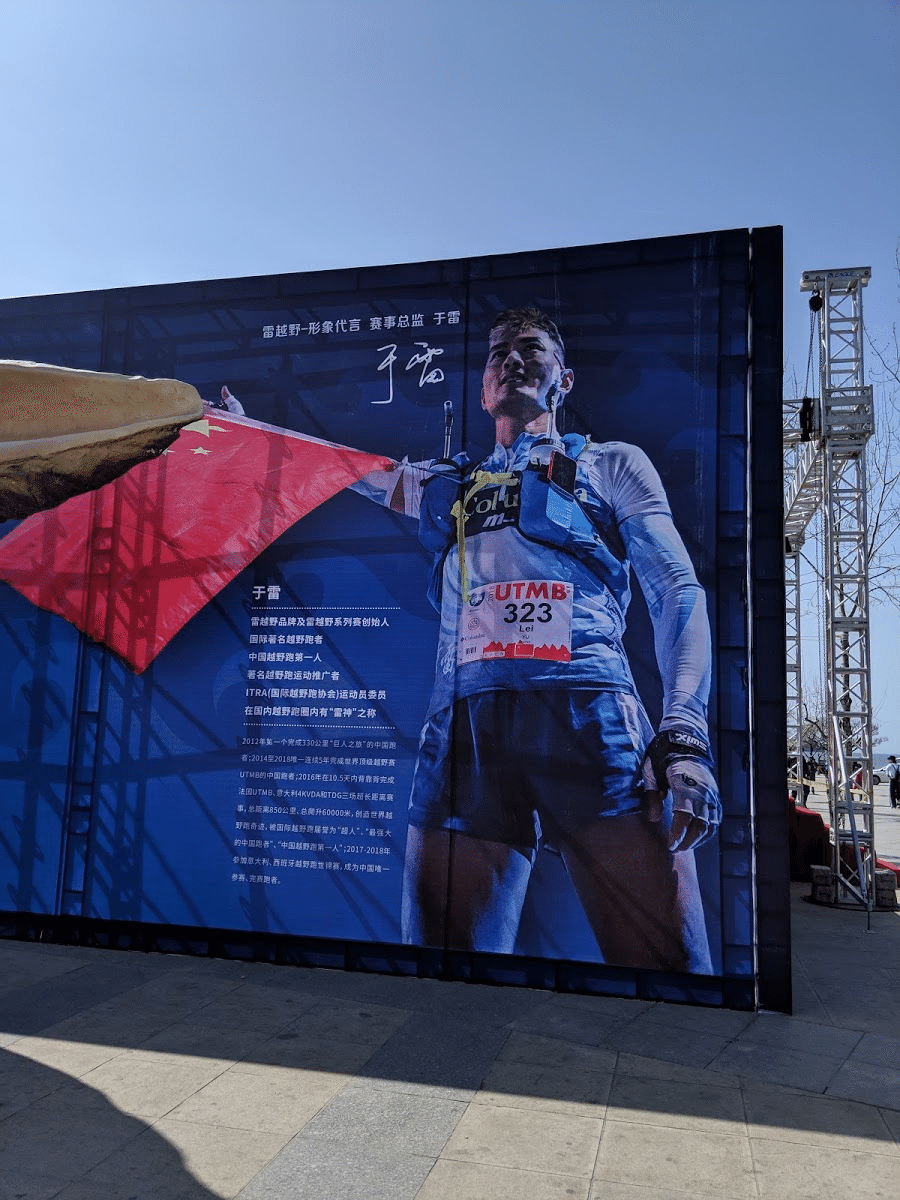
- First Chinese finisher of the Tordesian (TDG) (2012)
- Consecutive UTMB finisher from 2014-2018
- Completed UTMB, 4KVDA, and TDG all within 10.5 days in 2016 (total: 850km, 60,000m cumulative elevation)
- ITRA representative in China
- Known as the “God of Thunder” in the Chinese trail runner world
In addition to Dalian, he has organized races in Huangshan, Dali, and the Great Wall of China under the brand name Lei Ultra Trail League. Looking at the Chinese runners who participated in the event, we could understand that Yu Lei is an immensely popular trail runner in China.
About Race Entry
Regarding race entries, it is difficult to register directly from overseas for races in China, including the Dalian 100, so we asked Mr. Miyake, who runs Trail Running in China, to do so on our behalf. Trail races in China only support Alipay and WeChat Pay for payment, making it difficult for those living outside of China. Perhaps because of this, we had the impression that the ratio of foreign runners was smaller than in races in Hong Kong, Taiwan, and South Korea.
We were also very grateful to Mr. Miyake for his assistance in arranging accommodations, local transportation, meals, and providing detailed information on the race course. We stayed at the Yi Cheng Business Hotel for 4 days and 3 nights for about 5,500 Japanese yen per room. I shared the room with a friend, so I could stay at half that price. You can also make reservations through Booking.com. Located behind the Senmao Building, which houses the Japanese Consulate and many Japanese companies, there are many convenience stores, Japanese restaurants, and Chinese restaurants in the area, and there are also tourist attractions such as shopping centers, Labor Square, and People’s Square within a 5-10 minute walk.
Tournament Registration and Equipment
As for the race registration, it will take place at the starting point, 付家庄公园, on the day of the race, April 19, 2019 for the 100 km runners. You will need your passport and the pledge form (signed by you), which will be emailed to you in advance. The pledge form must be printed out in Japan and brought with you. Please note that we do not have a spare pledge form for those who have forgotten it, as is the case for races in Japan. Also, it seems that in the past you were required to submit a health certificate, but this is no longer necessary since last year.
Also, here are the equipment regulations for 2019. A mobile battery is a required equipment, which was not the case for other races.
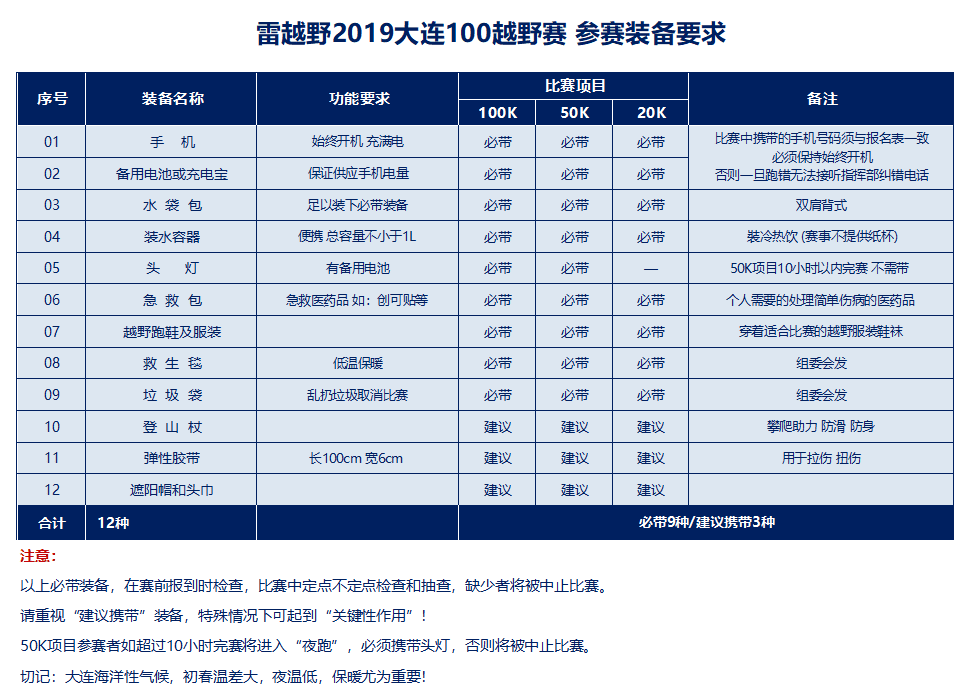
There are no detailed specifications regarding clothing, but mid-April in Dalian is cold. The temperature is about the same as early March in Kanto or Kansai in Japan. Since the Dalian 100 is run on a trail along the sea, the wind from the sea is cold and breezy, cooling the body at once. Therefore, you should bring a jacket made of windstopper material or compliant with it, as well as a warm jacket. I ran with a FineTrack Merino SpinLite as a base layer and a Spear Wrap Jacket, also from FineTrack, as a jacket.
Running the Dalian 100
Personal Story
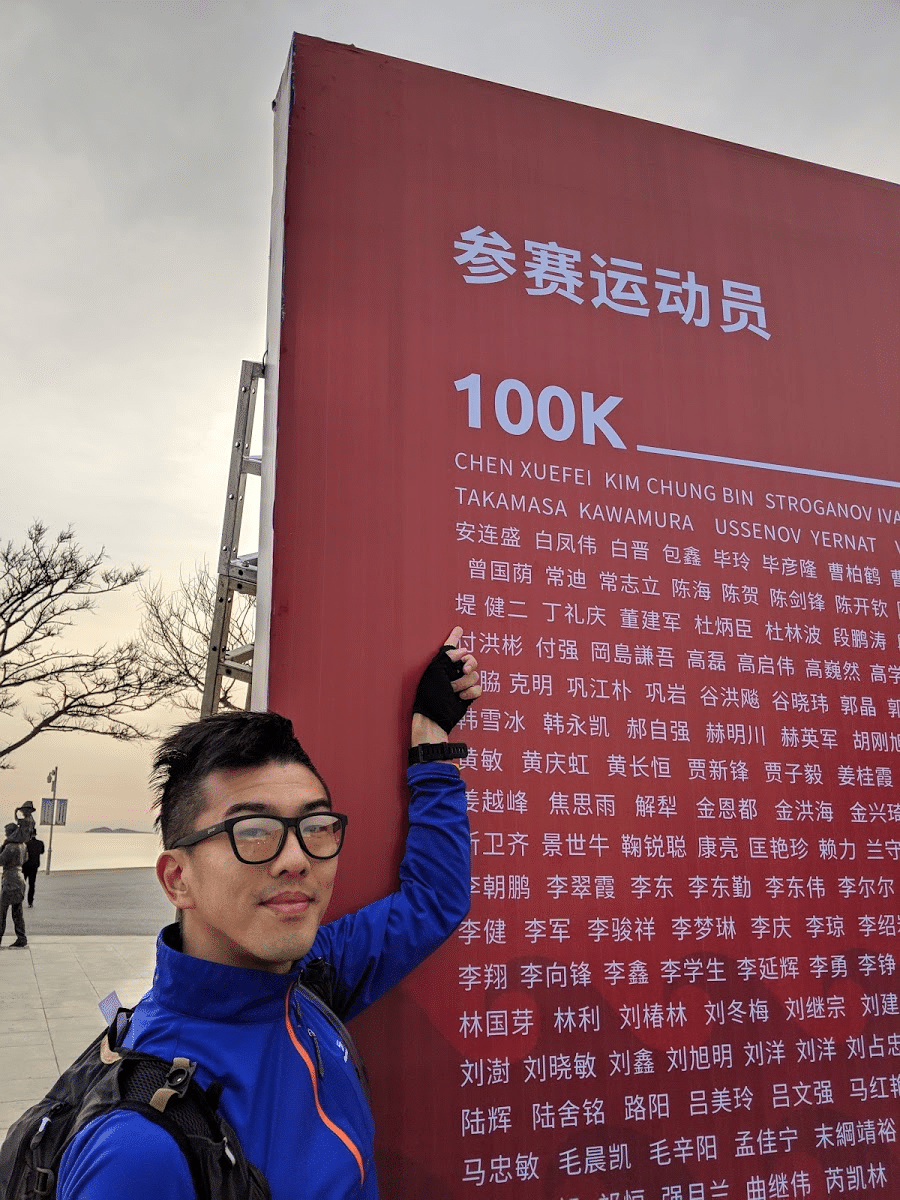
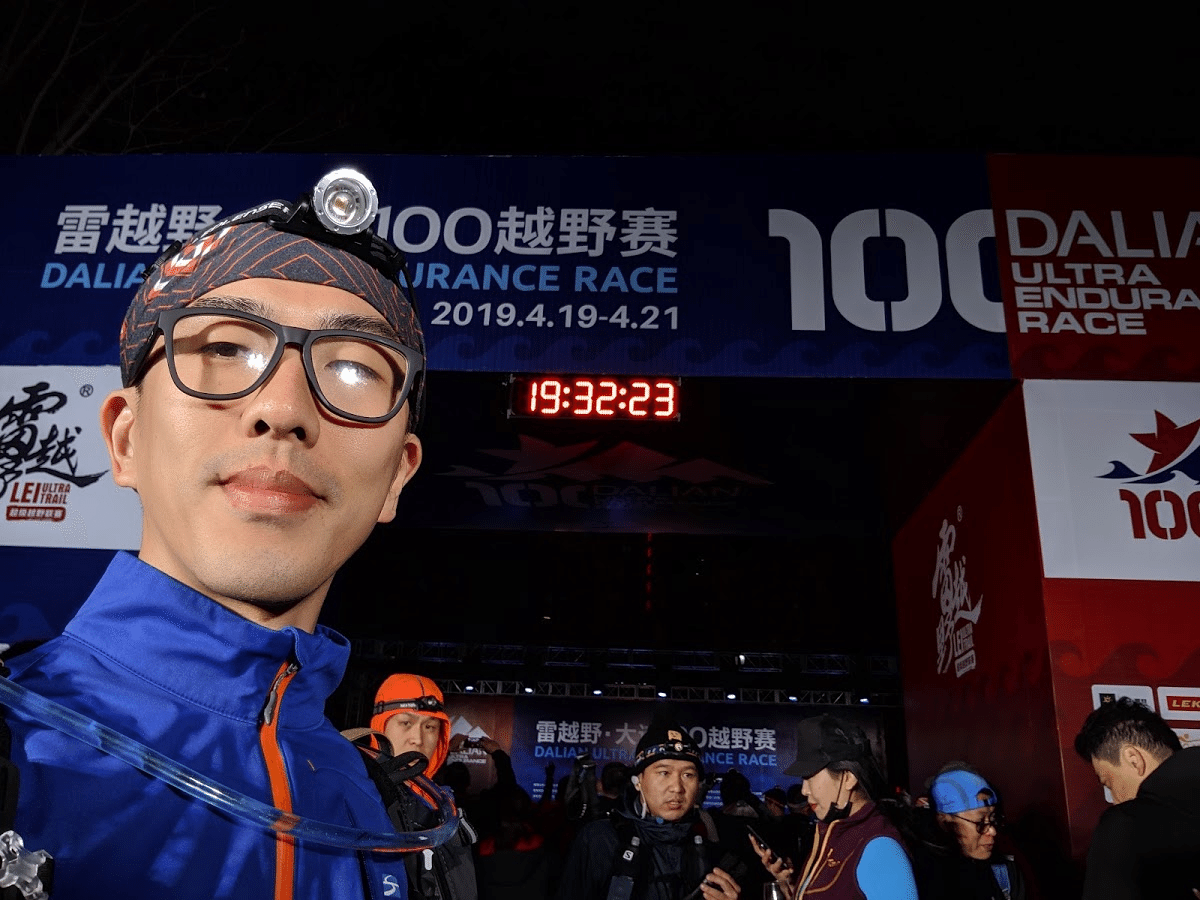
I finished the race without incident, in about 28 hours and 30 minutes (30 hour time limit), the first time I have finished a 100km class race since TransLantau two years ago. For the past two years, I had just been unable to FINISH due to injury (knee) and poor physical condition, but through physical modification and form improvement, I felt that I was finally able to FINISH in the Dalian 100. In particular, I have taken up strength training in earnest and increased my muscle mass, which was a major accomplishment. I think I have become physically and mentally tougher.
However, although my goal was to finish the race within 24 hours, I struggled with sleepiness, which is common in night-start races, and I was also worried about my knees, so I carefully managed the race in the first half. However, I could not overcome the sleepiness and could not increase my pace as much as I wanted in the first half, so I took a nap at CP4 (38.5km) and CP5 (55km, with drop bags) to help me recover in the second half. Thanks to my efforts, I was able to pick up the pace in the last 10 km or so and finish the race feeling good. I was very happy to receive a congratulatory message and a warm hug from the organizer, Mr. Yu Lei, who was waiting behind the finish tape. It was too nice of him to wait for all the runners until so late at night.
Talking about the course, the night view rivals that of Hong Kong
As for the course, the first 18km is mostly road, a bonus course; it takes about 90 minutes to reach CP2 (18km point). But from there, it is a tough course with technical climbs and descents. There are no high mountains in Dalian, and even the highest peak is about 250m. However, by repeating ups and downs of small mountains, the cumulative elevation reached 5800m, so it was very tough. It is a tough course that does not make you feel at ease until the end. Overall, it is the longest 30-hour trip in the metropolis of Dalian, running around in the surrounding mountains.
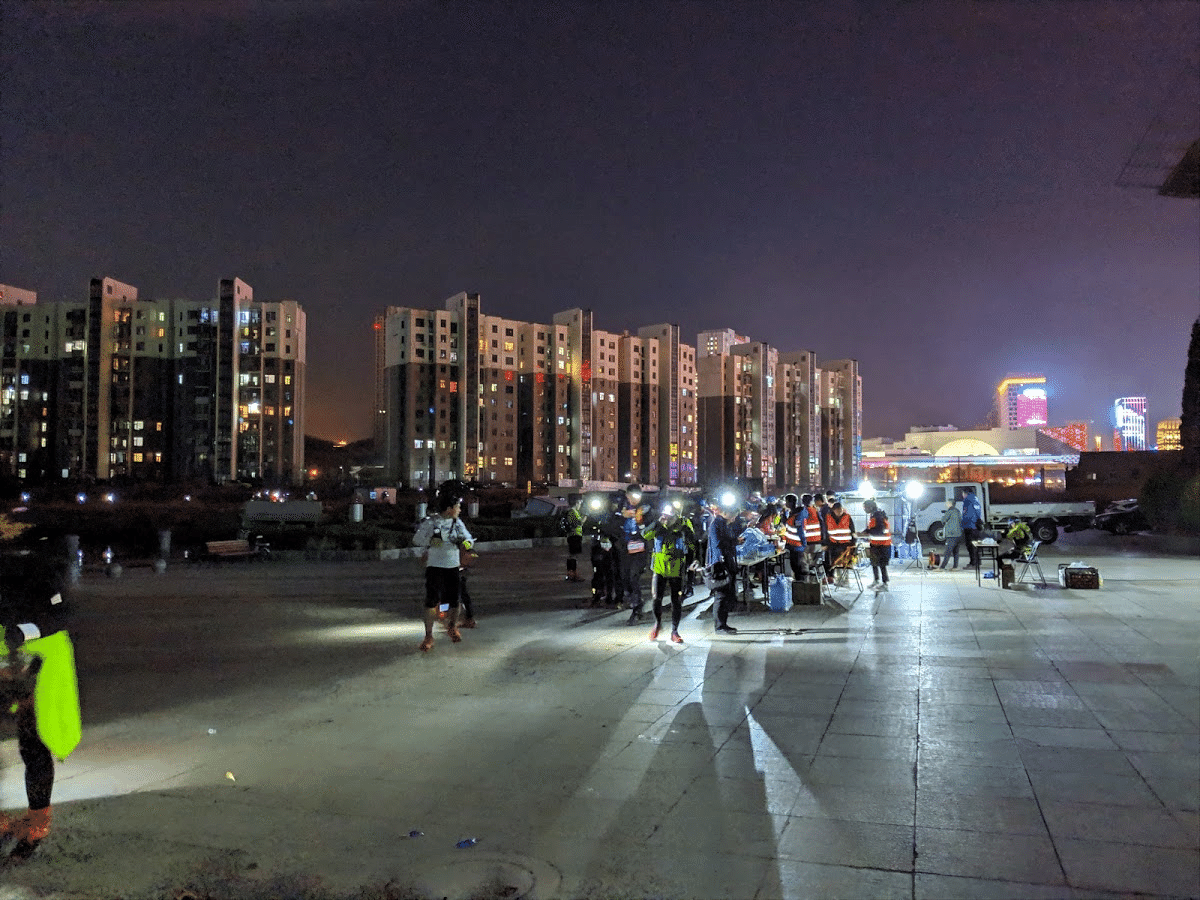
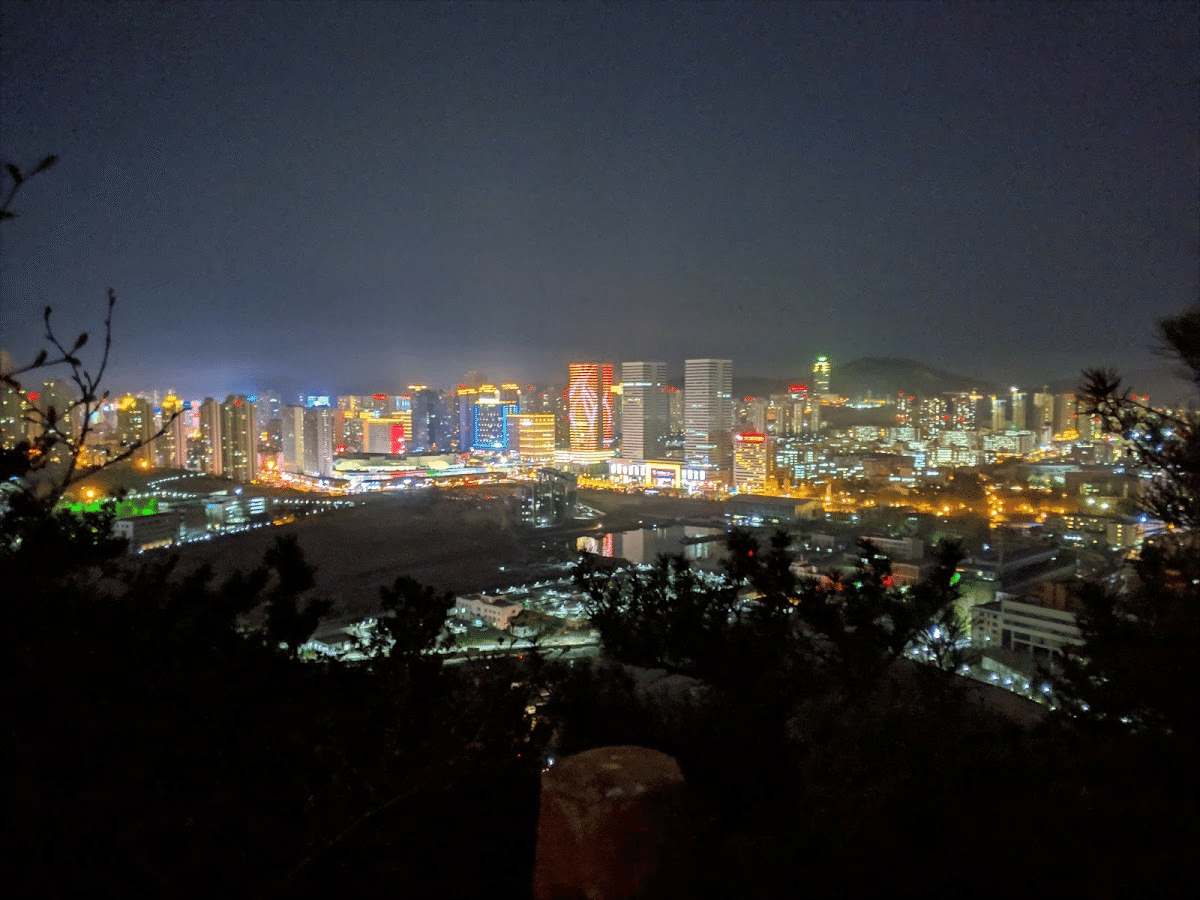
The night view of Dalian city was really beautiful. Hong Kong’s night view is beautiful, but Dalian is nice too. The night view of the 6km long Xinghai Bay Bridge at the beginning of the race is something you can’t experience in any other race. I don’t think there are any trail races, or even road races, that have a 6km bridge to run on.
Also, between the mountains, you will roam through the urban and residential areas of Dalian. Because of the low elevation, the city of Dalian can be enjoyed dynamically.
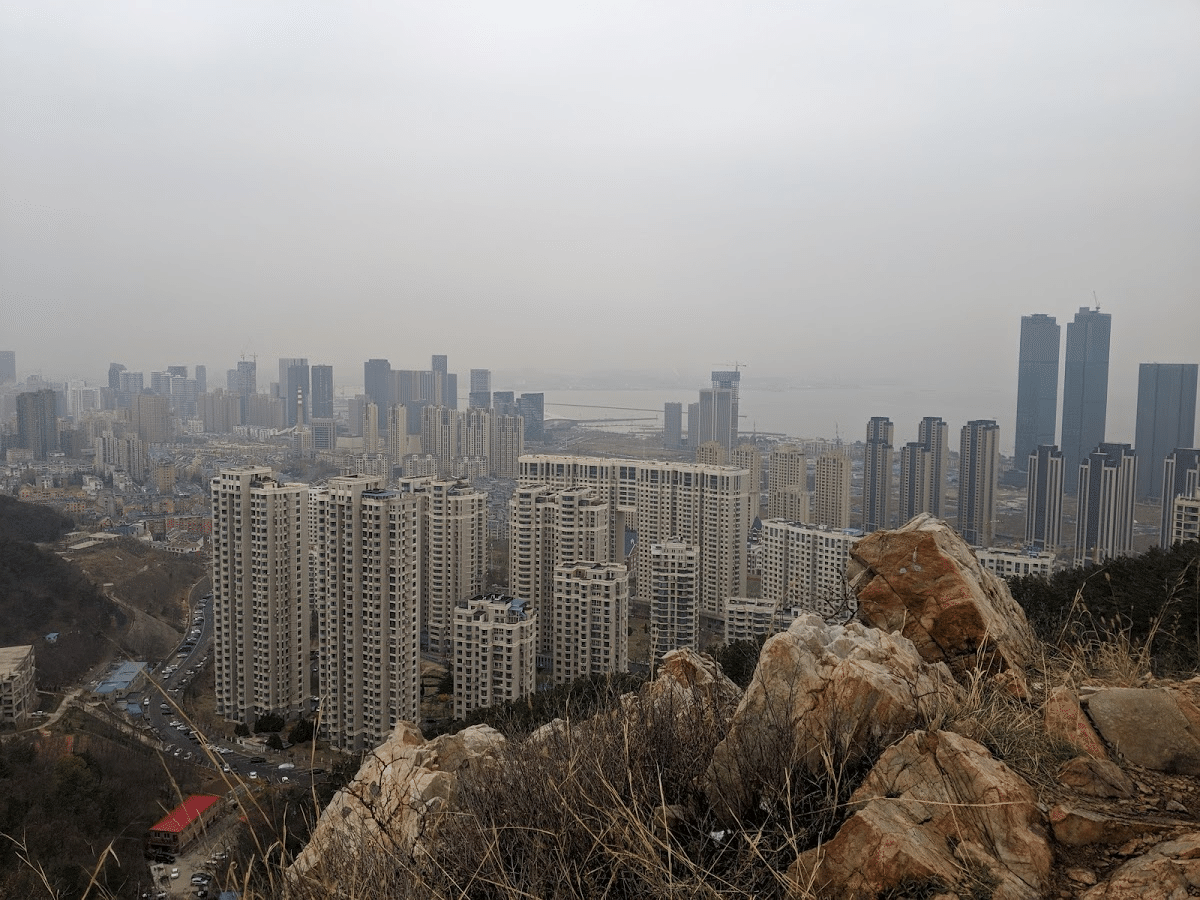
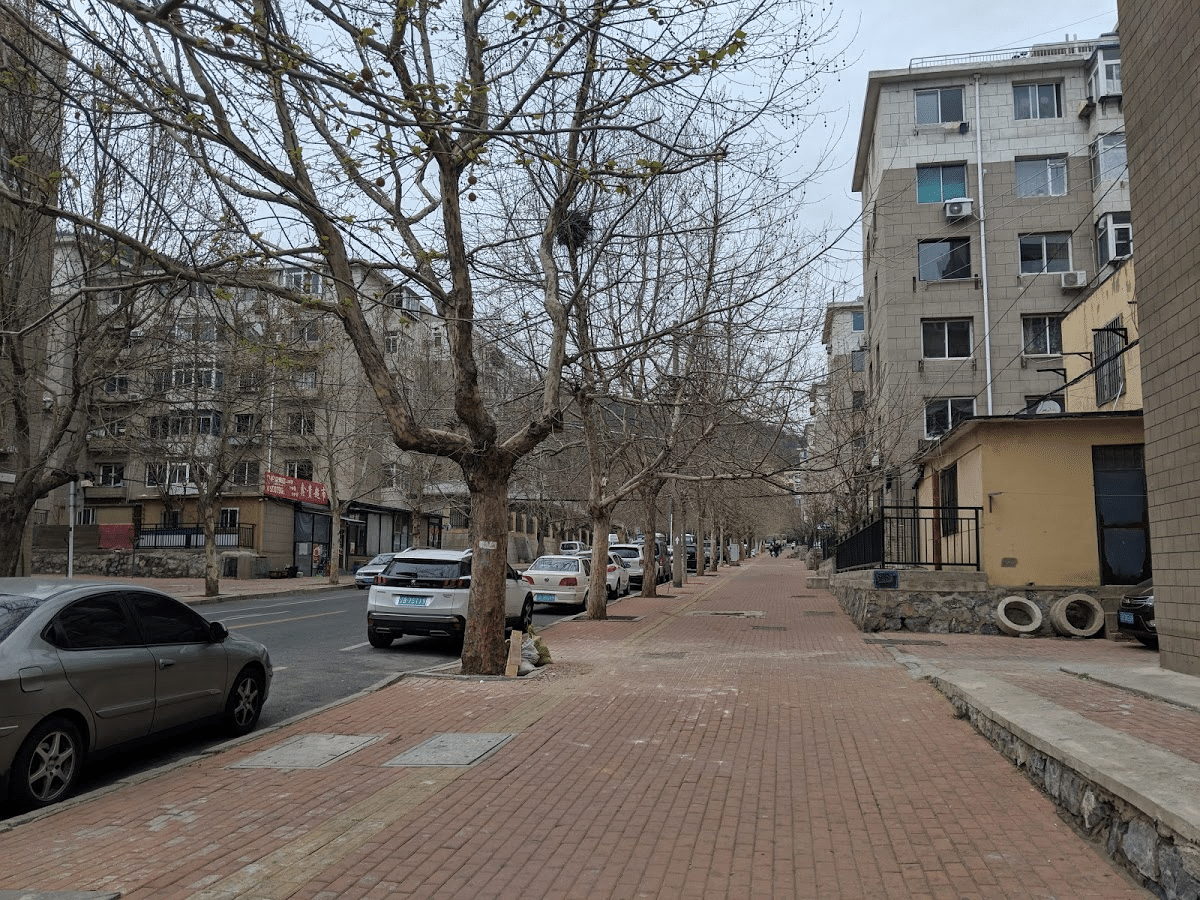
Food and Drinks at Aid Stations
There are a total of 11 aid stations.
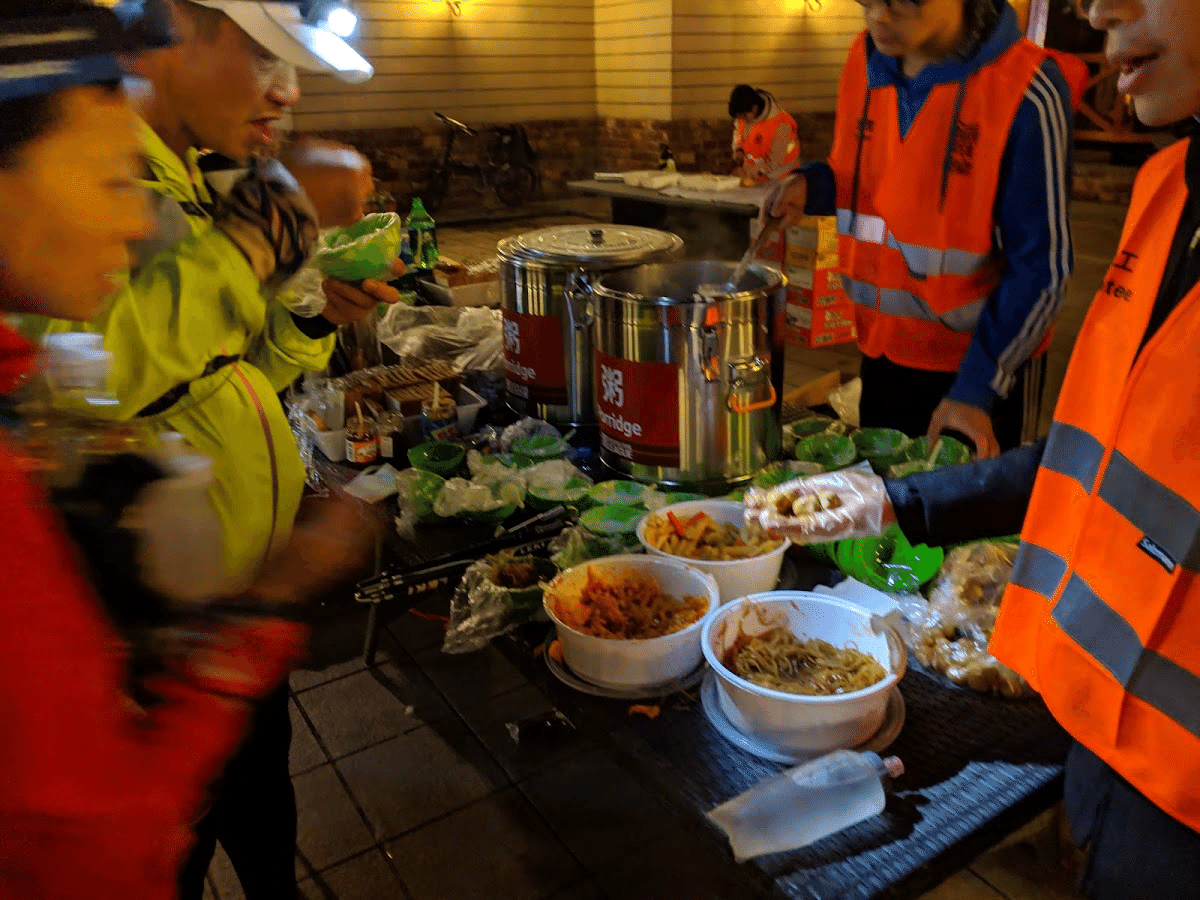
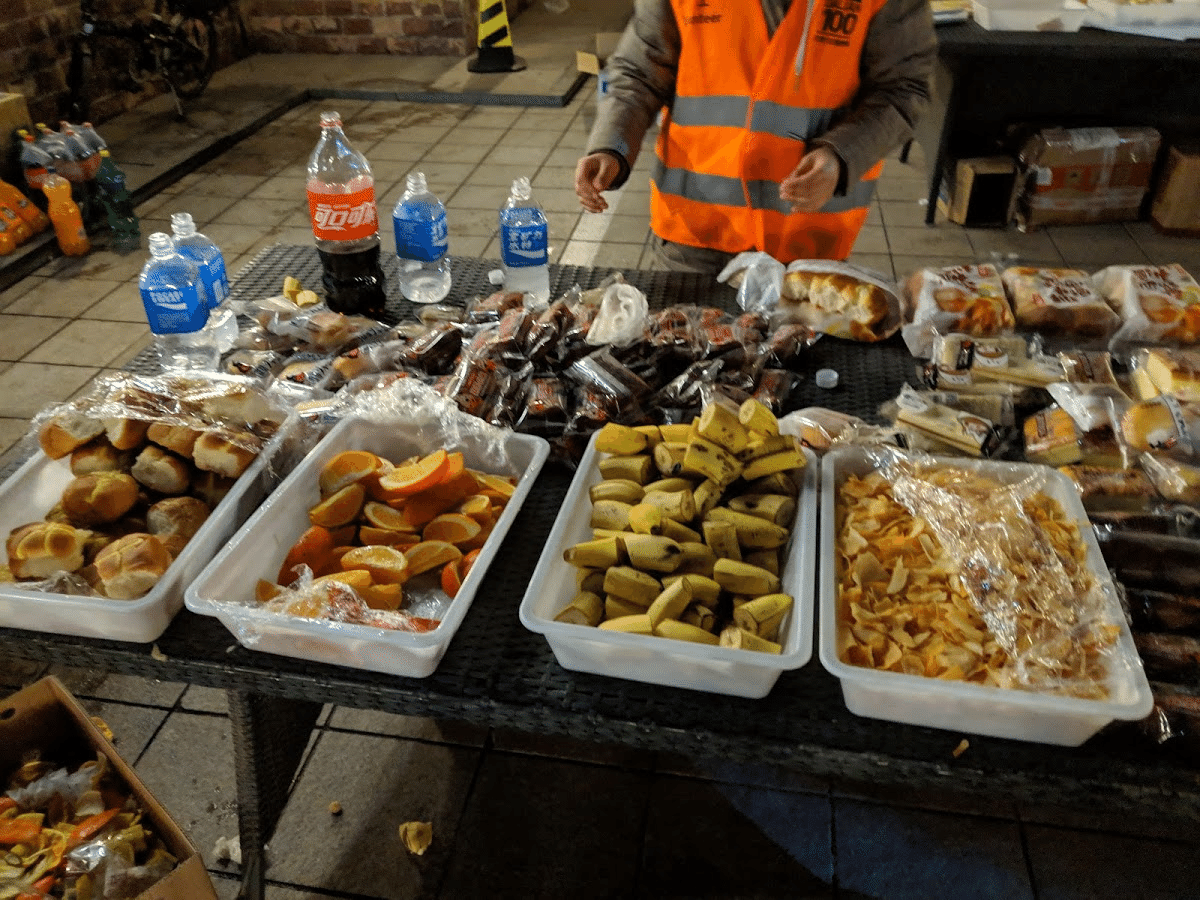
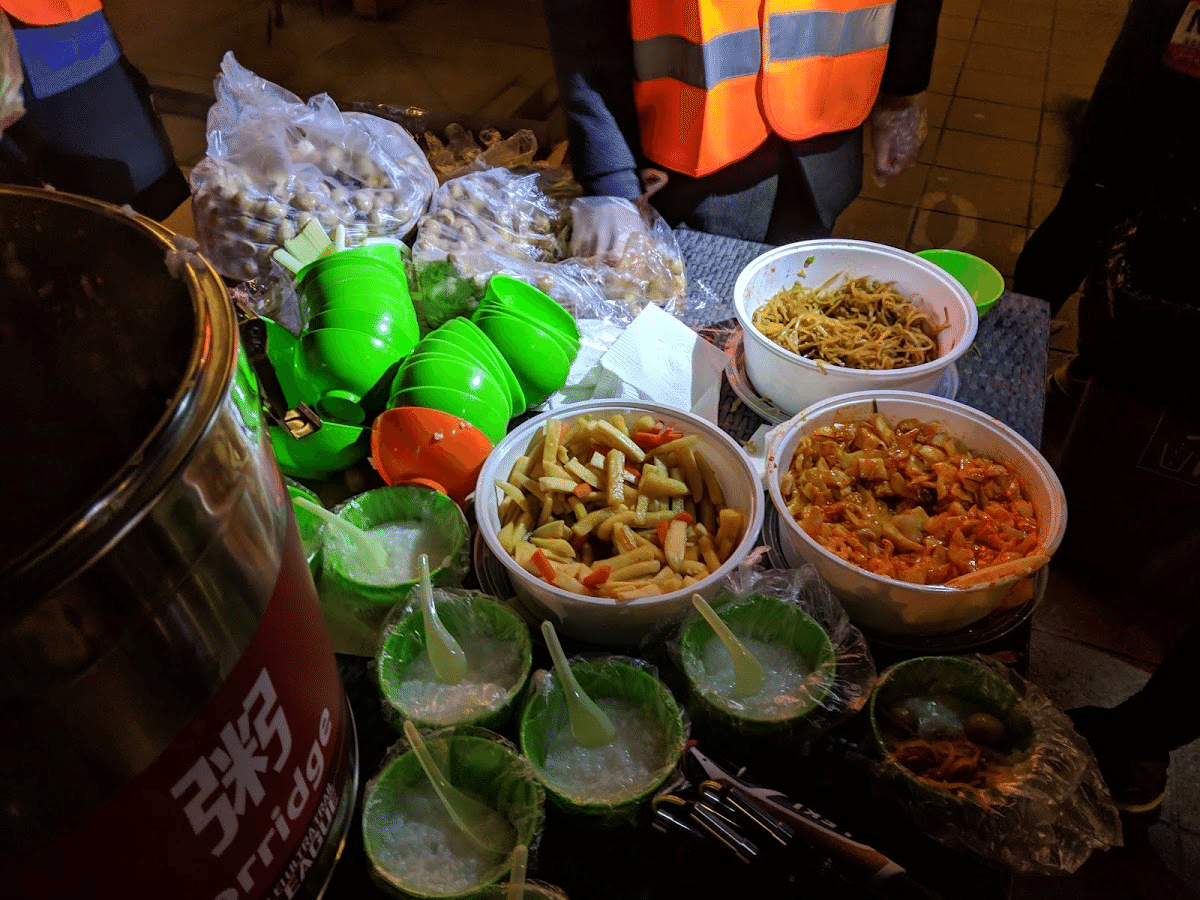
At almost every aid station, cup noodles, porridge, and bread will be served. Chinese pickles (such as Chinese pickles (zha cai)) are provided as condiments, which are delicious when added to congee or cup noodles. The Chinese pickles contain digestive enzymes (?) produced during fermentation. It also contains digestive enzymes (?) and salt, which are produced during fermentation, and is said to help runners’ digestion and replenish salt.
At CP4 (Jingshan Sub-district), the aid was a cafeteria in a residential area, where authentic Chinese food (stir-fried eggs and tomatoes, stir-fried vegetables, stir-fried meat, etc.) is served. Also, only one place offers steamed meat buns (baozi).
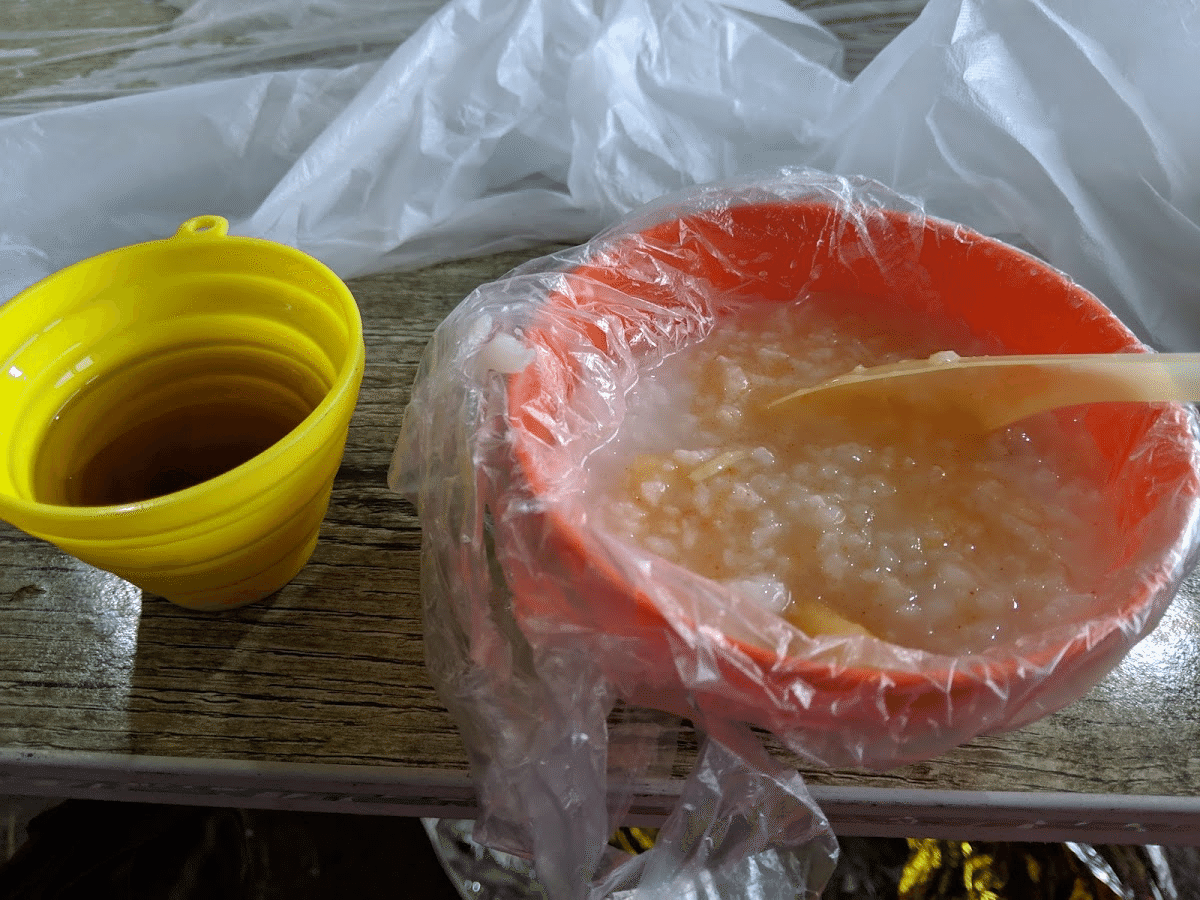
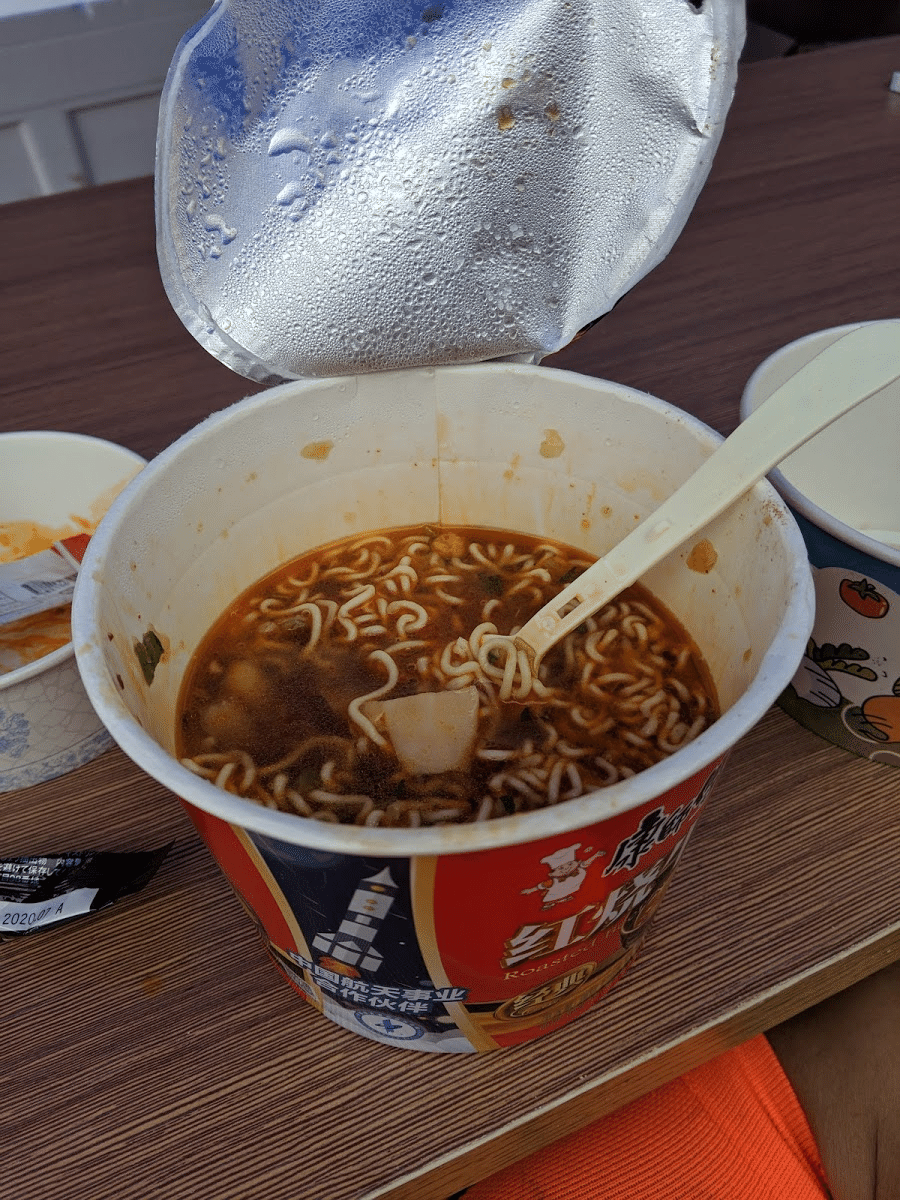
All of them were good, but as expected, since we had been eating Chinese food (hot pot, porridge, dumplings, noodles, etc.) ever since we entered China, and since we had been eating only Chinese food throughout the race, we got tired of it toward the end of the race and said, “Please给我面包、水果! (Laughs). After returning to Japan, I have been eating only Japanese food. Sushi, udon and unaju are the best!
The official language is Chinese
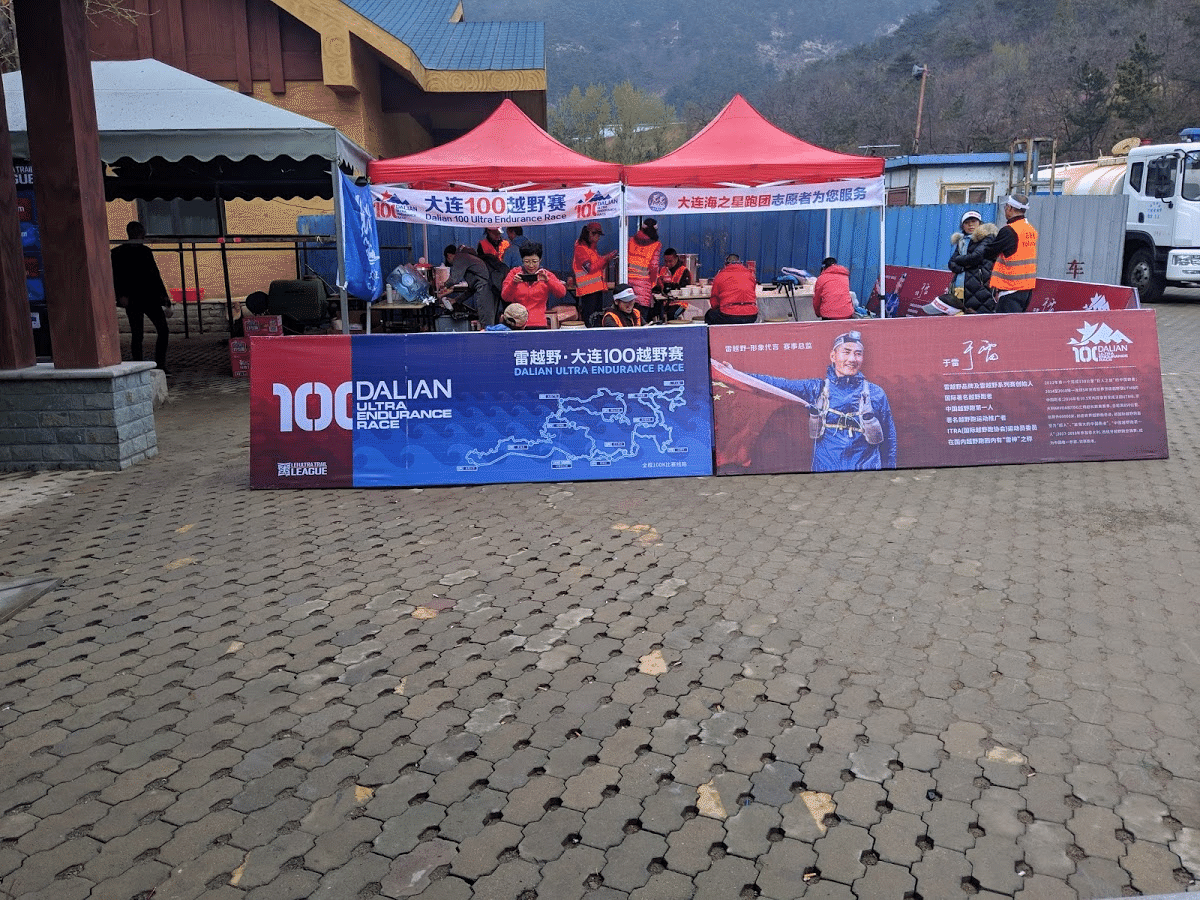
Since this is a Chinese race, the official language is Chinese, as a matter of course. English is not spoken by most of the staff (Yu Lei and a few staff members understood). Rather, there were more staff members who could understand Japanese… (laugh) Most of the runners are also Chinese, so the staff, the runners, and the residents in Dalian, all of them, will treat you as if you are Chinese. I had studied some Chinese, so I was able to have a simple conversation, but when it came to complicated topics, I really didn’t understand.
But when they found out I was Japanese, they asked me, “Where do you live in Japan? Kayu!” and so on in simple Chinese. I enjoyed the conversation. I had a lot of fun with Chinese hikers walking in the mountains, asking “How many kilometers are you running? I also had a conversation with a Chinese hiker walking in the mountains, “How many kilometers are you going to run? I felt that the Chinese language I had studied so far was useful.
Finally…
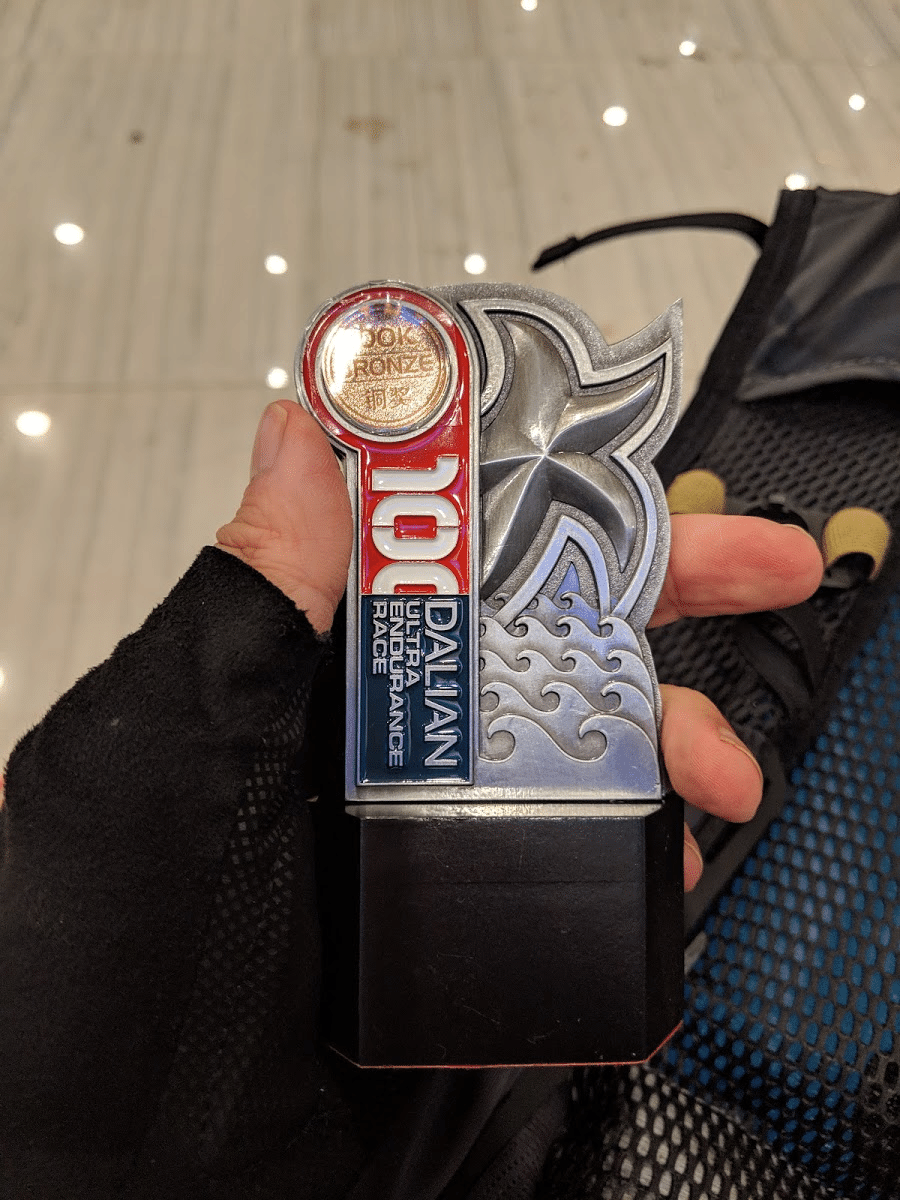
The Dalian 100 was a good experience for me, as I was finally rewarded for not being able to finish a 100km race for the past two years. I thought I overcame my knee anxiety, sleepiness, and other problems with my soul. At any rate, I managed to finish the race!
And this photo is a two-shot with Yu Lei at CP3 (Bunen Plaza). I felt that he had an aura of receptiveness or something like that. He was also very generous with his fan service, taking two-shots with other runners. I could understand why Yu Lei is so popular in China. I felt that the Dalian 100 is not only about the race course, but also about him.
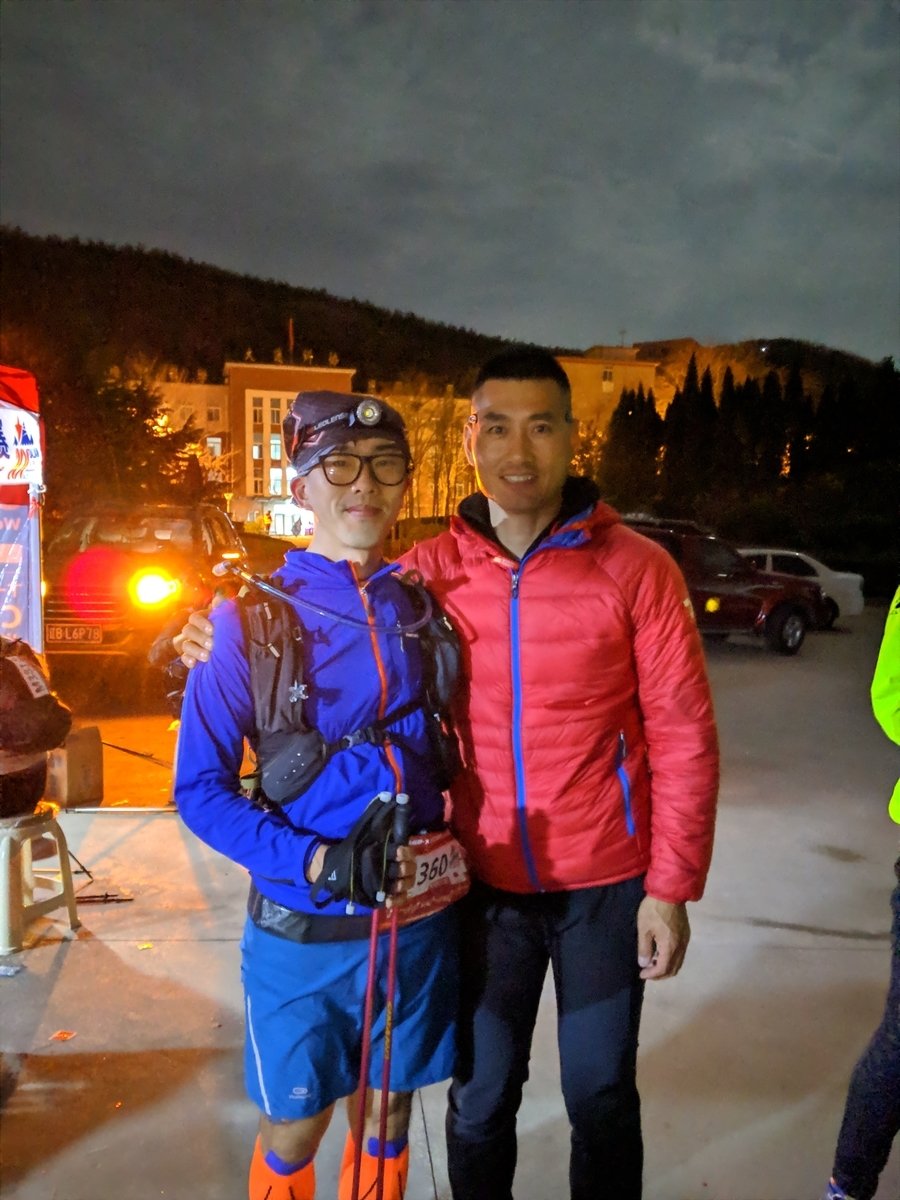
Finally, I would like to thank all the Japanese runners who participated in the Dalian 100 with me for the four days! It was my first time in mainland China, so I was a little anxious, but I was very grateful to have someone who knew the area and could speak Chinese better than I could. I also enjoyed the authentic Chinese food we had together. I hope to see you again at one of the races.
